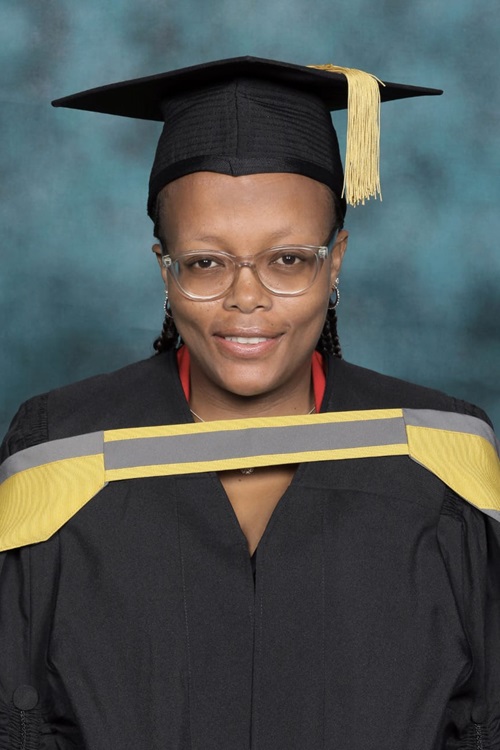As South Africa commemorates Youth Month – a time to reflect on the courage, resilience and vision of young people – we turn the spotlight on Khululwa Nosipho Shibani. At just 29, she is not only shaping young minds as an educator at Christiana School for the Blind and Partially Sighted, but also contributing to groundbreaking community research. Her journey reflects the spirit of Youth Month: bold leadership, unwavering dedication, and a passion for building a better, more inclusive future.
Here, she shares her remarkable journey:
What did you study at the NWU?
In 2016, I enrolled for a Bachelor of Education in Senior and FET Phase at the NWU, majoring in Geography and Mathematics. I completed my studies in 2019.
What is your current profession/occupation?
I am currently an educator at Christiana School for the Blind and Partially Sighted, and a community researcher in the North West Province, assisting the University of Pretoria’s Faculty of Health Sciences with research focused on motherhood and albinism.
What gives you the most joy in your current position?
What I love most about my job is my learners – how extraordinary and talented they are. Discovering their abilities and unique gifts each day gives me the motivation to look forward to tomorrow.
What is your fondest memory from your time at the NWU?
My fondest memories are those I created while serving in leadership roles: hosting meaningful events, participating in them, and learning from other leaders who shared best practices. I also treasure the memories made with student political leaders, some of whom went on to serve in the Students’ Campus Council.
Apart from your studies, what are some of the most important things you learned at the NWU?
Strong leadership practices.
What inspires you?
I am most inspired by women in leadership, those who lead by example. These women have cultivated inclusive, diverse working environments in their institutions and continue to make waves, proving how great leadership can help build a strong and safe nation. The institutions they have led continue to grow and flourish. I would like to mention Ms Agnes Rasesemola, Circuit Manager of the Boitshoko Local Education Office in the Bojanala District, North West, and former Principal of Sunrise View Secondary School; and Professor Mamokgethi Phakeng, the former Vice-Chancellor of the University of Cape Town.
What makes you positive about our country’s future, what doesn’t, and what would you like to change?
Our country may face many complex challenges that make it difficult to see its unique growth. Despite the rise in youth unemployment and crime, we must also recognise the positive developments in sport, academia and beyond. South Africa is home to prestigious institutions like the NWU, which are introducing programmes aimed at addressing our pressing social challenges through research. Our sportspeople are making their mark globally, showcasing their God-given talents in both sports and the arts. In recent months, our country has also stood as a symbol of peace, harmony and stability. With strong leadership, South Africa has the potential to become a powerful force on the global stage.
If you could give one message to our country’s youth on how to succeed in life, what would it be?
The youth must begin to prioritise their future – as individuals, community members and patriots. They should take the time to learn about our country’s history to better understand present-day affairs. Young people must become vocal advocates against the social ills affecting our communities and stand up to anything that hinders their progress. Those who have succeeded in their careers must take responsibility to lead – and as they rise, they must uplift others. It is time to take mental health seriously and stop relying on substances to cope. Success has no shortcuts; it demands hard work, determination and resilience. The youth should view life through the lens of reality rather than through social media filters. They must understand their purpose, knowing that we are all here for a reason and that life, ultimately, has no manual.

Khululwa Nosipho Shibani.
